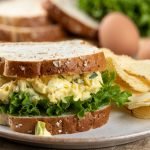Let’s be honest: the Full English breakfast is not exactly known for its restraint. We’re talking sausages, bacon, eggs, beans, toast, mushrooms, tomatoes, and sometimes even black pudding. It’s the kind of meal that seems more like a dare than a dietary choice. On the other hand, yogurt and granola sit smugly in their bowls, radiating health and Instagram-worthy purity.
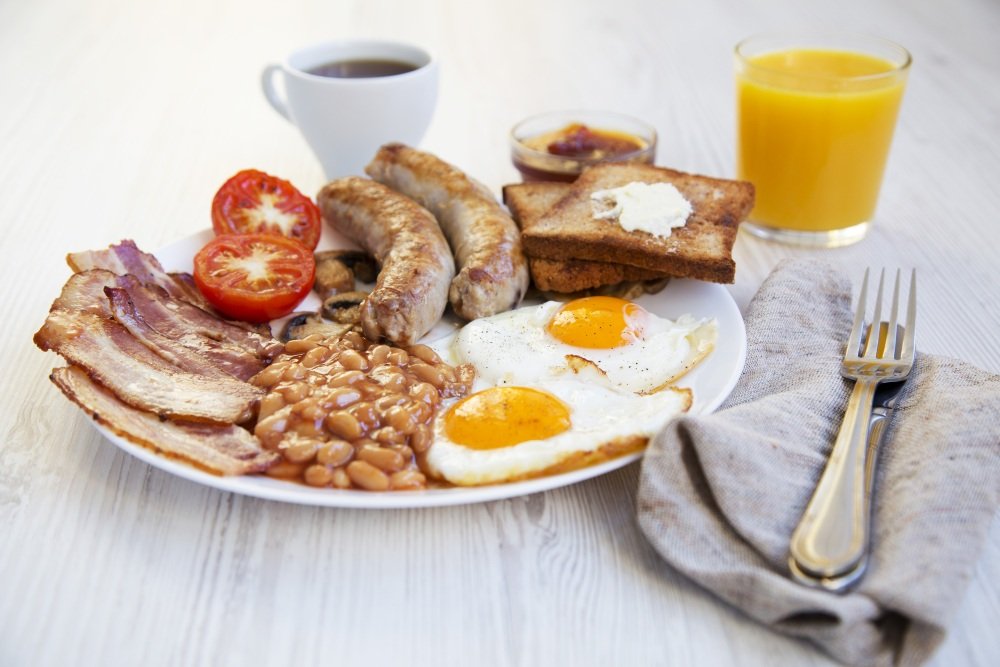
But here’s the plot twist: under the right circumstances, that greasy spoon special might actually be healthier than your “clean-eating” bowl of dairy and grains.
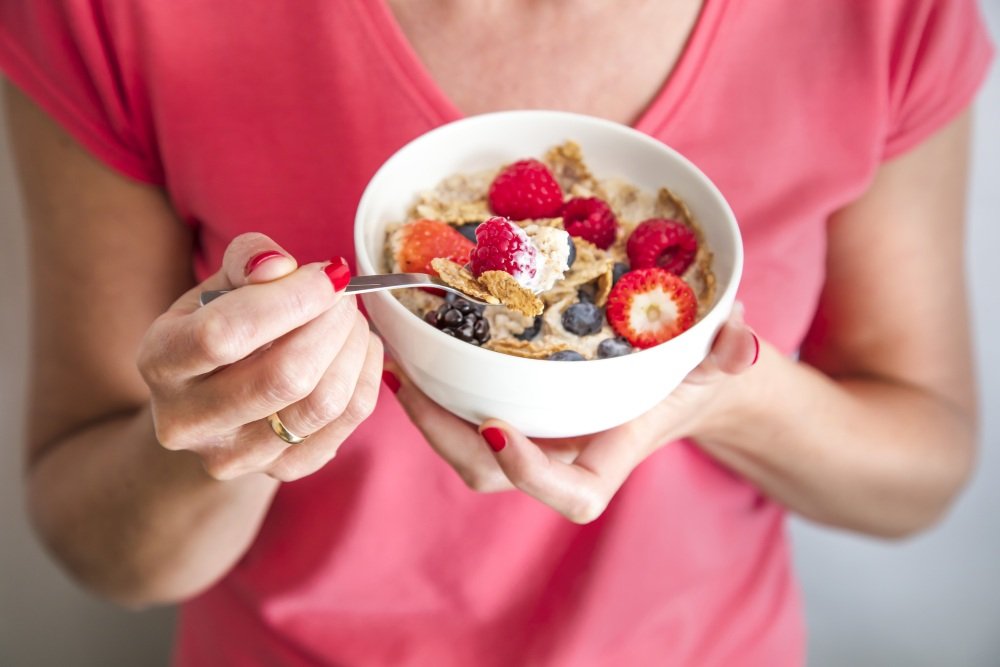
Wait, what?
Let’s dig in.
The Great Breakfast Stereotype
We’ve been conditioned to believe that fruit-topped yogurt and granola equals health, while a Full English equals a heart attack on a plate. But health isn’t just about appearances. It’s about what’s in the food—and how your body responds to it.
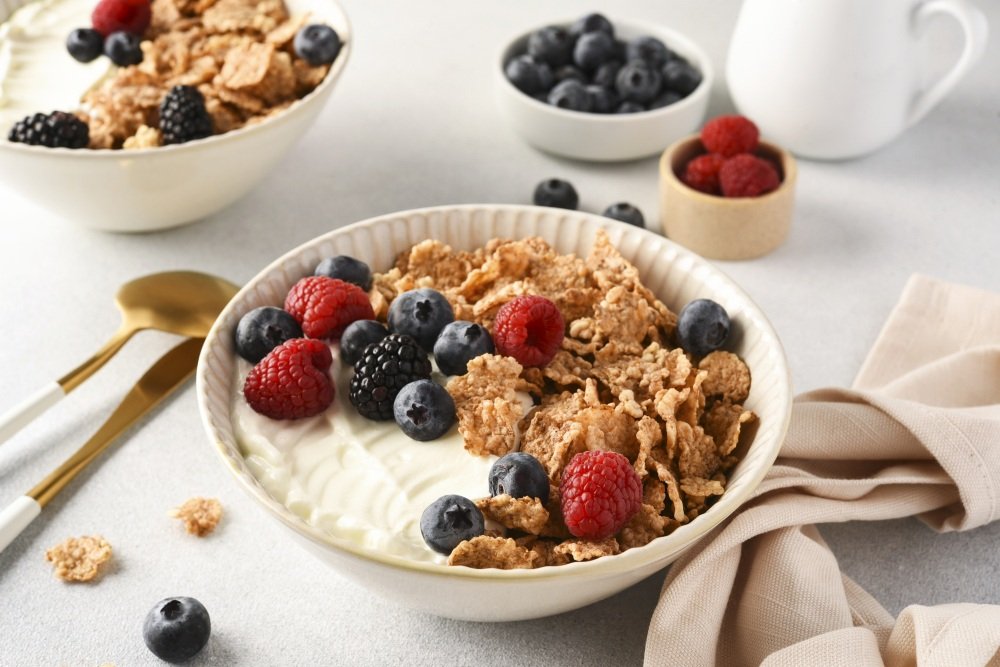
Sure, a traditional Full English can be a sodium bomb and full of saturated fats if it’s deep-fried and drowning in oil. But what if you tweak it just a little?
- Grill the sausages and bacon instead of frying
- Use high-quality, lean meat
- Opt for poached or boiled eggs instead of fried
- Add grilled tomatoes and mushrooms (bonus: veggies!)
- Use whole-grain toast
- Skip the black pudding if you’re squeamish (and trying to avoid cholesterol overload)

Suddenly, it’s not a breakfast of shame—it’s a balanced plate with protein, healthy fats, fiber, and even antioxidants.
Meanwhile, in Yogurt Land…
Now let’s turn to that “healthy” yogurt and granola.
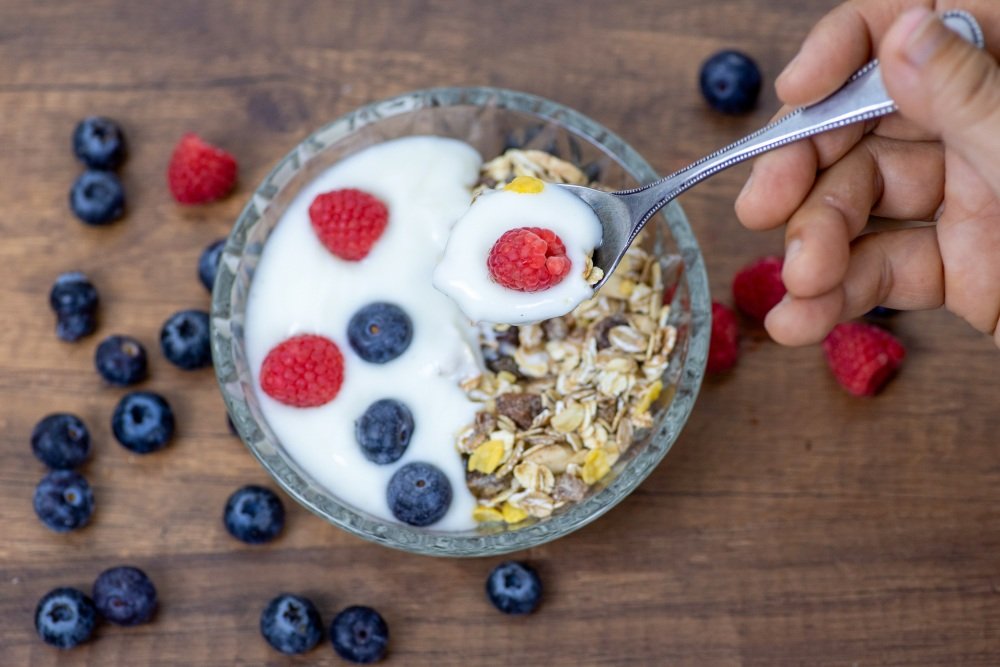
Here’s what you often get:
- Flavored yogurt: often loaded with added sugars (sometimes more than a doughnut!)
- Granola: marketed as healthy, but many store-bought versions are sugar and oil bombs
- Portion creep: a “small” bowl can sneak in 400–600 calories, mostly from sugar and carbs
- Low in protein, high in glycemic load = you’re hungry again in an hour
That’s right. Your innocent-looking parfait might be a dessert in disguise, especially if you’re not reading the labels.
The Protein Punch
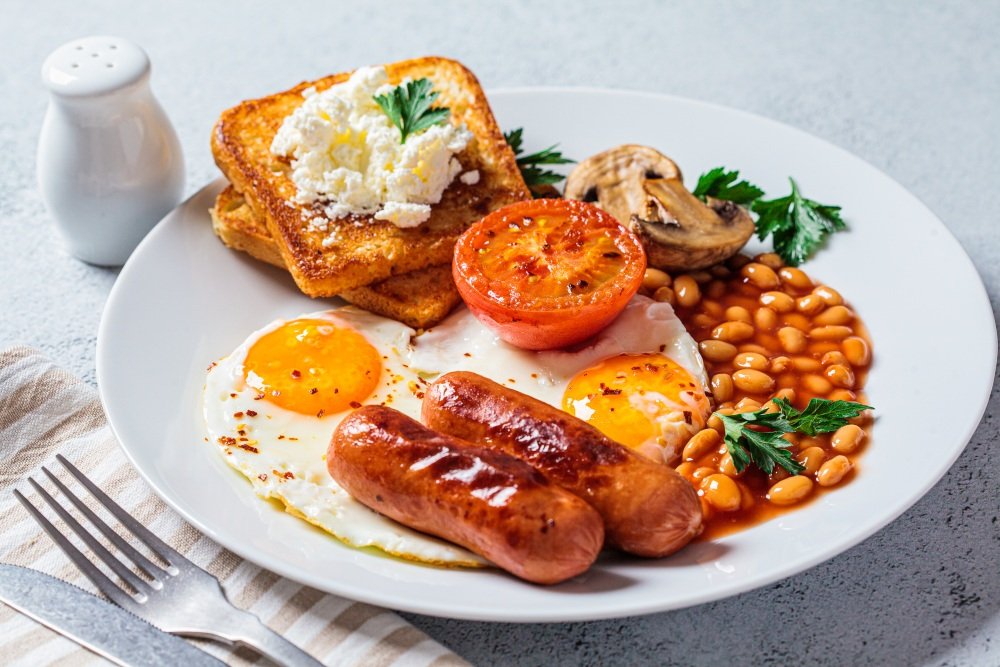
Protein is what keeps you full, helps you build and repair muscle, and keeps your energy stable. A properly made Full English packs tons of protein, while yogurt and granola often under-deliver in this department (unless you’re going Greek and piling on extras).
Protein also reduces the post-breakfast crash. That’s why after yogurt and granola, you’re often eyeing the snack cupboard by 10:45 a.m.
The Verdict: It Depends (but You Can Win Either Way)
Let’s not pretend a deep-fried fry-up from the motorway café is the new superfood. But a home-cooked, smartly prepared Full English can absolutely hold its own against trendy breakfast bowls.

Meanwhile, yogurt and granola can be great too—if you go plain yogurt, watch the granola portions, and skip the added sugar.
So, can a Full English be healthier than yogurt and granola?
Yes—if you cook smart, eat mindfully, and avoid going full English every day.
After all, balance is better than either food cult. Just maybe don’t follow it up with sticky toffee pudding at 8 a.m.







